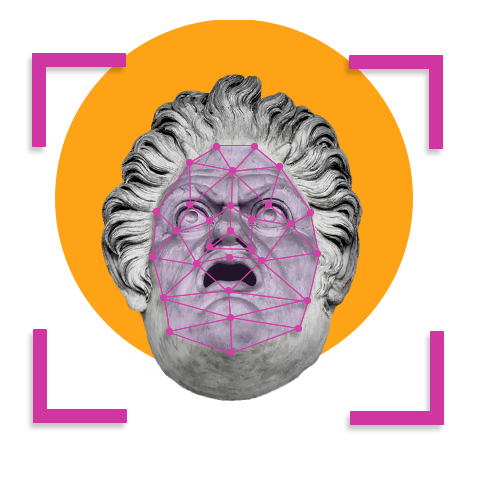We have also prepared an interesting workshop for the conference attendees, which will be held on Friday, 08.12, 17:00-20:00 at the premises of SWPS University! You can sign up for the workshop using the conference registration form.
Participants can choose from up to three different thematic options:
1. LLMs in the physical world, room S310
Large Language Models have taken the world by storm in recent years, and the world of robotics is no exception. They have the potential to greatly improve the experience of interacting with robots, but bringing them into the physical world brings a host of new challenges, such as uncertainty in what the robot sees or hears.
At United Robitics Group we have been using them with NAO and Pepper for quite a few different use cases (entertainment, information, research), and would like to share our experience, and exchange ideas with other practitioners (and non-practitioners!).
This workshop is focused around three themes:
Theory: the intersection of HRI (Human-Robot Interaction) and LLMs:
Experience Report: Pepper and ChatGPT: what we learned.
How to design interactions with LLMs
Leader:
Émile Kroeger - programmer and software engineer, renowned for his expertise in machine learning and game development. With a deep passion for innovation and tackling technical challenges, Émile has made significant contributions to various fields, particularly in software architecture, statistics, prototyping, procedural content generation, usability, and robotics.
2. VR/AR New Challenges of Interaction, room S309
Augmented reality is slowly becoming a part of the real world, providing entertainment, information or helping to perform various activities. Innovation in VR/AR is becoming one of the more rapidly growing branches of new technologies, and in the next decades will provide new solutions that change the way people interact with both each other and physical reality. The theme of the workshop is both these future and current challenges facing VR/AR technologies. The workshop will provide an opportunity for participants to hear first-hand the viewpoints of augmented reality researchers and innovators on the current state of the technology and its future paths.
In addition to presentations and discussions, the workshop will also include demonstrations of VR/AR technology in small groups. In this way, the workshop will provide an excellent opportunity for interdisciplinary and promising contacts between enthusiasts and experts in the field of new technologies.
Leader:
PsyTech VR - innovators in AI-driven mental health therapy using VR/AR, offering personalized treatment experiences and groundbreaking VR telemedicine services since
2020.
Łukasz Szajda - entrepreneur and VR innovator, co-developing a VR assessment tool for human competencies at GuideMe. Actively leads VR workshops, pioneering practical VR applications in business.
Adam Żądło - a multimedia artist and academic specializing in VR, known for transferring philosophical texts into immersive VR experiences and supporting scientific communities in cyborg development and space exploration.
Jowita Guja - a distinguished Polish scholar and professor at AGH University, manages EduVRLab, specializing in VR/AR technology integration with cultural studies and philosophy, pioneering in VR research and education.
3. AI in Legal Practice – From Prototype to Practice, room S306
The "AI in Legal Practice – From Prototype to Practice" workshop at the HumanTech Summit 2023 is a groundbreaking event for scientists, technology industry representatives, and legal professionals. This interactive session will focus on the integration of Artificial Intelligence in the judiciary, providing participants with hands-on experience with an innovative AI system, and fostering a dialogue on the digital transformation of legal proceedings.
This workshop aims to offer a comprehensive understanding of AI's role and potential in legal settings. It's designed to bridge the gap between theoretical knowledge and practical application, encouraging the exchange of ideas between different disciplines and fostering collaborations for future innovations in legal technology.
The workshop is structured into three main parts. It will kick off with a keynote speech by Kevin Freizer from St. Thomas University College of Law, highlighting interdisciplinary education. Following this, Piotr Krzak will lead a session on AI's practical applications in the judiciary, including a demonstration and analysis of AI systems in comparison to traditional legal decision-making. The event will conclude with a roundtable discussion, bringing together a diverse panel of judges, lawyers, and AI experts to discuss the future of AI in legal practice and its societal implications.
Leader:
Piotr Krzak - po 15 latach pracy w wymiarze sprawiedliwości, z czego 7 lat jako sędzia, rozpoczął nowy etap kariery, łącząc prawo z Data Science. Skupia się na tworzeniu narzędzi wykorzystujących nowe technologie, mających na celu usprawnienie funkcjonowania wymiaru sprawiedliwości, ułatwienie pracy prawników, oraz tworzenie rozwiązań dla sektora biznesowego.
Contact: piotr.krzak.prawnik@gmail.com
Kevin Frazier - assistant Professor of Law in 2023 at St. Thomas University Benjamin L. Crump College of Law. His research focus on investigating how new governance systems, such as Meta’s Oversight Board, as well as older and neglected systems, such as state constitutions, have adjusted to an age of rapid technological
advancement and institutional distrust.
































































